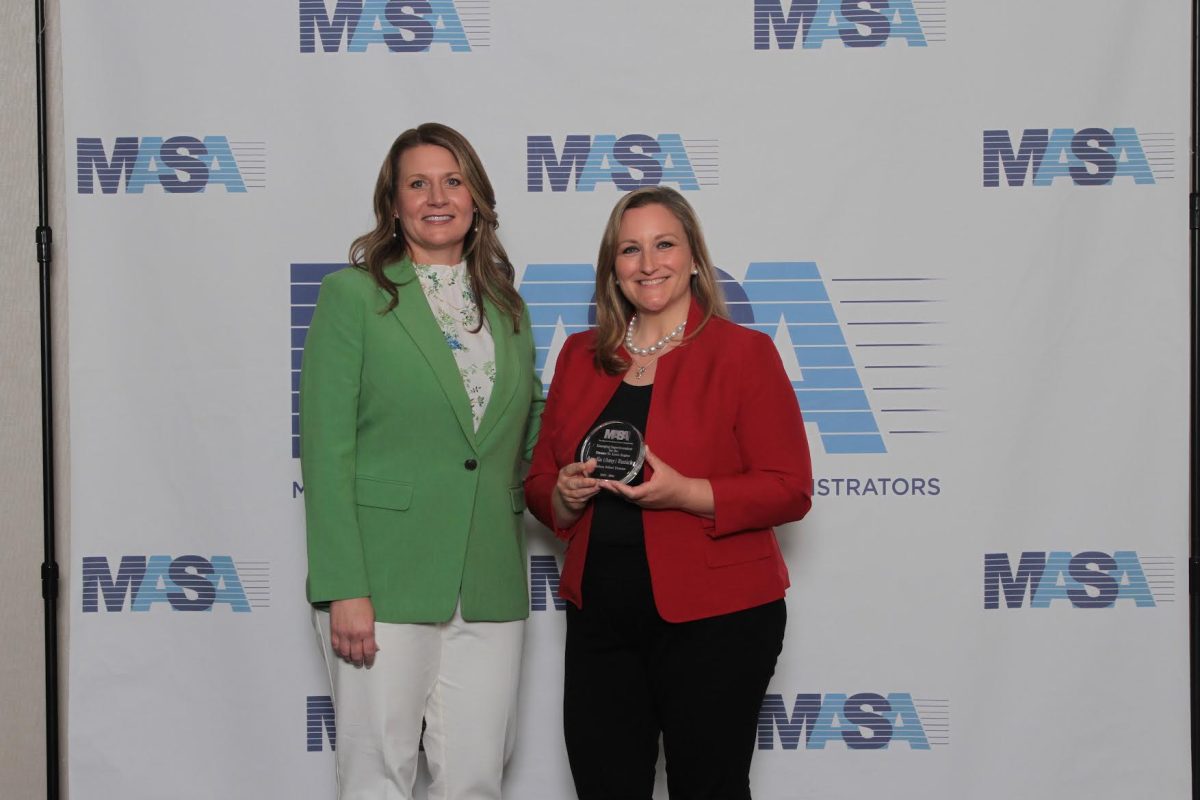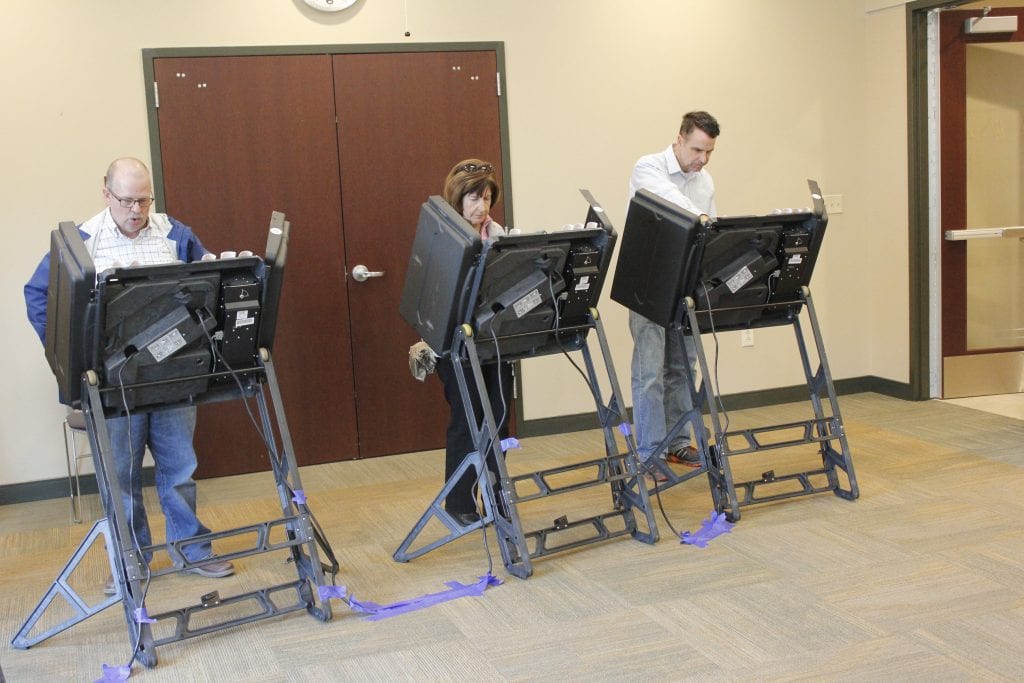By Tyler Wornell
Columbia Missourian
JEFFERSON CITY — A fight over funding for elementary and secondary education led to political theatrics on the Missouri Senate floor Wednesday, as senators argued back and forth over fully funding the K-12 foundation formula during debate on the 2019 budget.
While the Missouri House fully funded the formula in its version of the budget with a $98 million increase from last year, the Senate Appropriations Committee reduced the increase by $50 million and put half toward K-12 transportation and the other half toward other areas of the budget.
Leading off the debate, Sen. Jill Schupp, D-Creve Coeur, offered an amendment to put the $50 million back into the foundation formula, which is used to augment state aid to public schools across the state. Schupp argued that K-12 education should be a top priority for the state.
“I want to make sure all of our kids, regardless of where they live in the state, have access to a quality, resourced education,” Schupp said. “This is something that we must do to take care of our schools, including our schools in rural Missouri.”
Sen. Jamilah Nasheed, D-St. Louis, stood in support with Schupp, reiterating points she previously made in the appropriations committee about the lack of a skilled workforce in the state.
“I may be going against my chairman on this issue, but it’s the right thing to do,” Nasheed said. “I didn’t come here to tap dance. I came here to be a voice for the voiceless.”
That chairman is Sen. Dan Brown, R-Rolla, who oversaw the budget process in the Senate. Brown said the $50 million can be used as a negotiating tool when the Senate and House meet in a conference committee to hash out their differences and agree on a final budget.
“Going into conference, it gives me a position where I lose on this but I win on something else, maybe higher ed,” Brown said. “I don’t think we’re shorting education.”
Sen. Dan Hegeman, R-Cosby, asked Schupp where she’s going to get the $50 million. She pointed to a list of current bills with high financial estimates.
“If we have the money to do these things, perhaps we have the money to do what I consider to be the state’s No. 1 priority,” Schupp said. “If this was my budget to deal with alone, I would be tipping the scales in support of public education.”
Hegeman, who sits on the appropriations committee, said there are other programs that never get looked at in the budget process that desperately need funding, like nursing homes, which receive additional funding in Brown’s plan.
“In my mind, it’s a crisis. It’s a must need,” Hegeman said. “There were some other dollars that we needed to do to take care of folks like the elderly.”
Sens. Gary Romine and Dave Schatz spoke against Schupp’s amendment. Romine, R-Farmington, chairs the Senate Education Committee, and said funding for transportation is critical for rural districts. Funding for transportation was decreased in last year’s budget, and proponents argue that transportation funding has an impact on more districts than the foundation formula.
“Although we are not fully funding as we did last year, we are meeting the needs of several areas,” Romine said. “Transportation is one of the biggest issues that is being called out for in my rural district.”
In a tricky procedural move, Sen. Bob Onder, R-St. Charles, offered what is known as a third-degree amendment — an amended amendment to Schupp’s amendment. If successful, it would have shut down Schupp’s efforts.
He agreed with Brown, saying the Senate should “give our conferees a position to negotiate.”
Sen. Jason Holsman, D-Kansas City, called it a “hostile” move.
“I don’t know that what you’re doing right now is necessary, because the amendment would have gone down based on the vote last year,” Holsman said.
He was referring to a Senate vote last year that shot down fully funding the formula.
As debate ensued, Schupp pulled a page out of Onder’s playbook and withdrew her amendment, then offered a third-degree amendment in an attempt to force a roll-call vote. Typically, the bill would pass with a voice vote that doesn’t record individual senators’ votes.
Schatz, R-Sullivan, wasn’t pleased and questioned Schupp’s motives. He argued it was a way to get senators on record as voting against public education.
“If you wanted to do the right thing, we can stop this nonsense on the floor, and you can withdraw the amendment,” Schatz said. “This is pure political gamesmanship.”
When everything was said and done, Schupp withdrew her amendment a second time, and the Senate passed the bill 25-8. Funding for the foundation formula will be negotiated with the House in a conference committee.
Higher education issues
The Senate also approved a restoration of $68 million in cuts to higher education, but differed on a House plan to fund co-operative programs between the University of Missouri System and other schools.
The House budget funds the co-op programs at 60 percent of the requested level and puts the money into universities’ core budgets. The Senate plan keeps the co-op programs as individual line items and funds them at 100 percent. Some argue that making something an individual line item can make it a target for a governor’s withholdings.
Also included in the Senate plan is an additional $2 million to Harris-Stowe University and $2.5 million to Missouri Southern State University, which is currently facing a financial crisis. Its Board of Governors approved a nearly 15-percent increase to tuition next year, according to the Joplin Globe.
The Senate was still discussing the budget late Wednesday evening. Once it’s passed, House and Senate members will meet in a conference committee to agree on a final version.



























